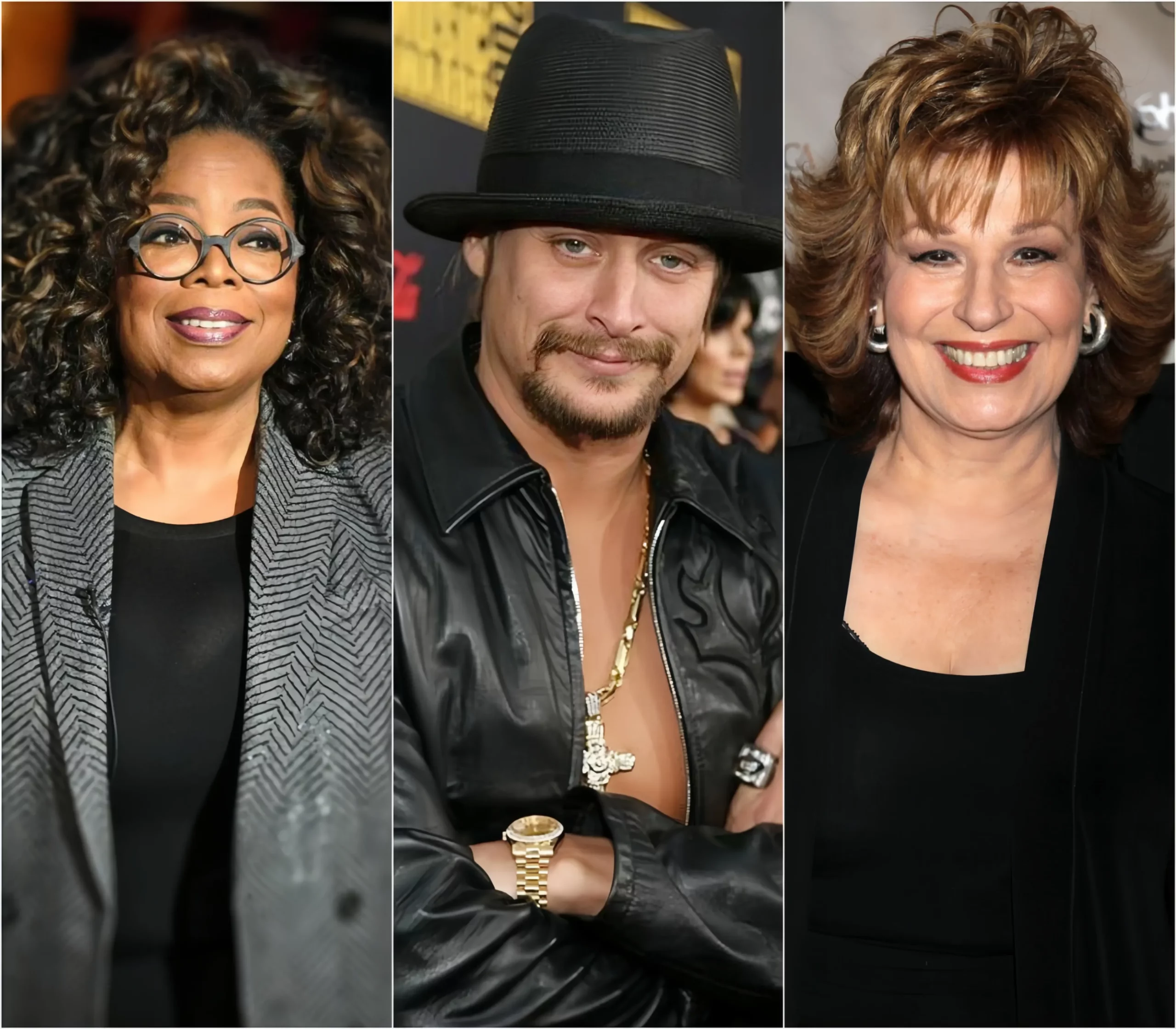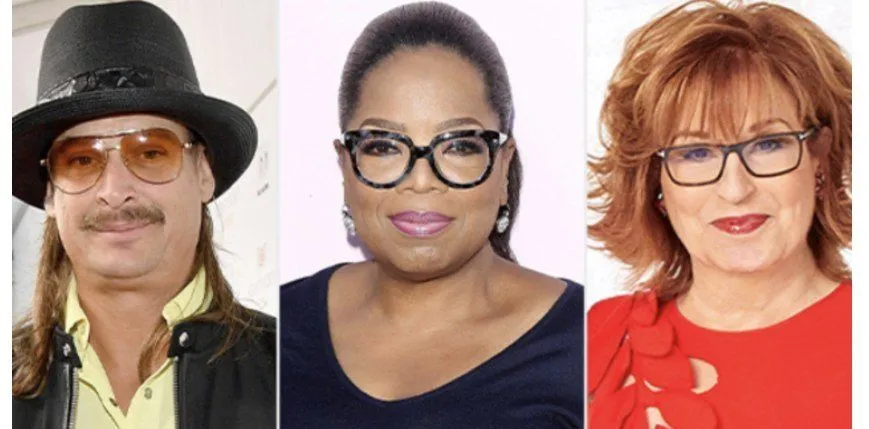In a bold and controversial move, Kid Rock has made headlines once again, this time for refusing to apologize for a drunken rant where he publicly attacked media mogul Oprah Winfrey and television personality Joy Behar. The incident, which took place at a Nashville bar, has sparked widespread outrage, but despite mounting pressure from fans and critics alike, Kid Rock remains unapologetic.

His refusal to back down has further fueled the ongoing debate about cancel culture, freedom of speech, and the role of celebrities in public discourse. In this article, we’ll break down what happened during the infamous rant, the public’s reaction, and why Kid Rock is standing his ground.
The incident occurred during a late-night performance at the Big Ass Honky Tonk Rock N’ Roll Steakhouse, a bar in Nashville that Kid Rock co-owns. In the midst of his performance, the musician launched into a profanity-laced tirade targeting Oprah Winfrey and Joy Behar, two prominent women in the media. The rant quickly escalated, with Kid Rock using explicit language and personal attacks.
Kid Rock specifically called out Oprah, saying he “doesn’t care what anyone thinks” and accused her of “pushing her agenda” on America. He then turned his attention to Joy Behar, co-host of The View, attacking her political views and accusing her of being part of a liberal agenda that he opposes.
While many people in the audience were shocked, some cheered him on, further amplifying the controversy. Soon after, videos of the incident were posted online, where they quickly went viral and sparked a social media firestorm. Despite the backlash, Kid Rock has remained unapologetic, doubling down on his stance and defending his right to speak his mind.
The reaction to Kid Rock’s rant has been predictably divided. On one hand, many have condemned his comments as inappropriate, offensive, and disrespectful, especially considering the cultural impact and influence of both Oprah Winfrey and Joy Behar. Critics have accused Kid Rock of promoting divisiveness and misogyny, calling for him to issue a public apology.
Fans of Oprah and Joy Behar have rallied on social media, expressing their outrage at the personal attacks and questioning Kid Rock’s motivations for targeting these two influential women. Several notable figures in the media and entertainment industry have also weighed in, with some calling his comments “reckless” and “irresponsible.”
However, Kid Rock’s loyal fan base has been largely supportive of his stance, viewing his refusal to apologize as a stand against what they see as political correctness and cancel culture. For many of his fans, Kid Rock’s actions represent a defiance against the mainstream media and liberal ideology. Supporters have flooded social media with messages defending his right to free speech, with some even echoing his sentiments about Oprah and Behar.

This divide has brought to light the broader cultural clash in America, where political polarization is more pronounced than ever. While some view Kid Rock’s tirade as harmful rhetoric, others see it as an expression of freedom in an era where celebrities are often held to impossibly high standards of behavior.
Rather than issue an apology, Kid Rock has chosen to stand by his words. In a follow-up statement, he defended his actions by saying that he has always been open about his beliefs and that he refuses to be silenced by public opinion or pressure from critics. “I’m not apologizing for being real,” he said. “I speak my mind, and that’s never going to change. If people don’t like it, that’s on them.”
For Kid Rock, this incident is just one in a long history of controversies where he’s refused to back down from his opinions. Known for his outspoken political views and unfiltered commentary, Kid Rock has long positioned himself as a rebel in the music industry, defying both Hollywood and mainstream media expectations.
This latest incident only reinforces his image as an artist who doesn’t conform to societal pressures, and for many of his fans, that’s precisely what makes him relatable. However, it also underscores the question of accountability: Should public figures like Kid Rock be held to a higher standard when it comes to public discourse, or should they be allowed to express themselves without fear of backlash?
Kid Rock’s refusal to apologize has reignited discussions about cancel culture, a controversial topic in today’s political climate. Many of his supporters argue that he is being unfairly targeted by people who disagree with his opinions and that demanding an apology is an attempt to silence voices that challenge the status quo.
On the other hand, critics argue that there’s a difference between free speech and hateful speech. They believe that public figures like Kid Rock, with large platforms and influence, should be more mindful of the impact their words have on society, especially when those words are directed at women of color like Oprah Winfrey.
The intersection of free speech and accountability remains a complex issue. In a world where social media gives everyone a platform, the line between self-expression and harmful rhetoric becomes increasingly blurred. Kid Rock’s case is a clear example of this ongoing debate.
Kid Rock’s refusal to apologize for his drunken rant against Oprah Winfrey and Joy Behar has divided both fans and critics, highlighting the complex dynamics of free speech, cancel culture, and celebrity influence in today’s world. While some view his actions as reckless, others see them as a stand for personal expression in a time of increased scrutiny.